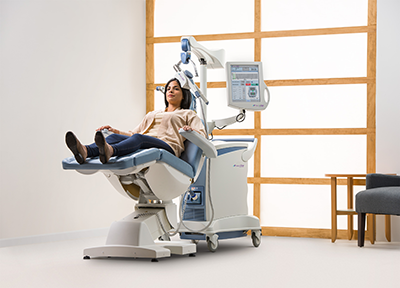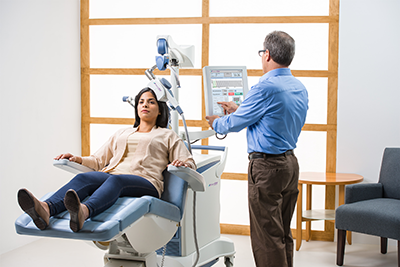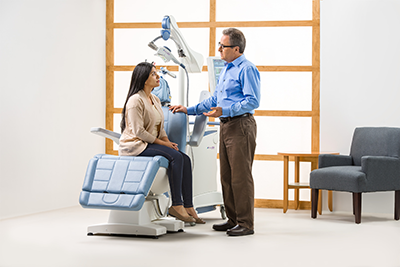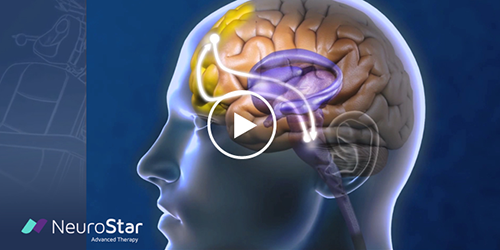Transcranial magnetic stimulation (TMS) uses a targeted pulsed magnetic field, similar to what is used in an MRI (magnetic resonance imaging) machine. While the patient is awake and alert, NeuroStar TMS Therapy stimulates areas of the brain that are underactive in depression.
Here’s what you can expect from a NeuroStar Advanced Therapy (TMS) session:
Before treatment
- You’ll recline comfortably in the treatment chair
- A small, curved magnetic coil will be positioned lightly on your head
During treatment
- NeuroStar delivers focused magnetic stimulation directly to the target areas of the brain
- You’ll hear a clicking sound and feel a tapping sensation on your head
After treatment
- You can resume normal activities immediately
- Because there are no effects on alertness or memory, you can drive yourself to and from treatment sessions
In-office treatment with NeuroStar TMS Therapy takes 19-37 minutes and is administered 5 days a week for approximately 4-6 weeks.*
NeuroStar is a safe treatment for depression
Most Insurances Accepted
Fill out the form below to get in touch with us for more details and schedule an appointment
NeuroStar TMS Therapy is only available by prescription. A doctor can help decide if NeuroStar TMS Therapy is right for you.
Important Safety Information
The most common side effect is pain or discomfort at or near the treatment site. These events are transient; they occur during the TMS treatment course and do not occur for most patients after the first week of treatment. There is a rare risk of seizure associated with the use of NeuroStar TMS (<0.1% per patient). NeuroStar TMS Therapy should not be used with patients who have non-removable conductive metal in or near the head. NeuroStar TMS Therapy has not been studied in patients who have not received prior antidepressant treatment.




